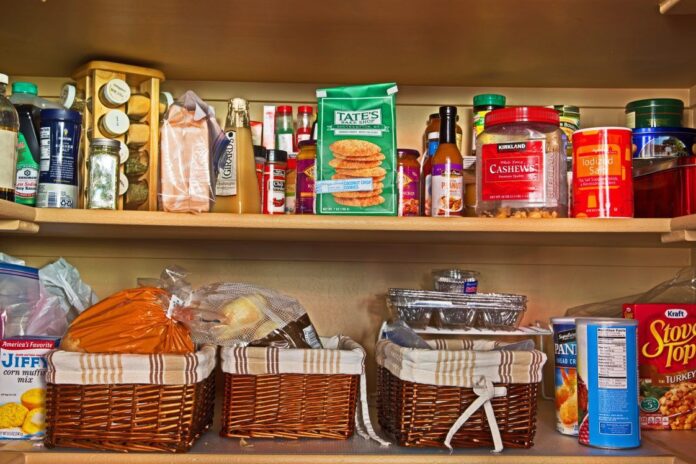AUBURN UNIVERSITY, Ala. — Take advantage of the cold weather and make the time spent indoors productive. Angela Treadaway, an Alabama Cooperative Extension System food safety and quality regional agent, said the new year is a great time to inventory canned food items and spices that may have been in your pantry for many years.
“Canned foods are safe alternatives to fresh and frozen foods and help meet dietary needs and avoid preservatives,” Treadaway said. “Proper storage can greatly increase the shelf life and quality of canned foods.”
Shelf life
Home-canned and commercially canned foods are both good options for consumers to keep produce on the shelf at home. While there are some good frozen-food options, Treadaway said they will likely not last nearly as long as canned foods will.
Home-canned foods
While home-canned produce may be more desirable because of the ability to control added salt and sugar, Treadaway said it is important to only preserve the best produce because home-canning cannot improve the quality.
“Home-canned foods — such as vegetables, meats, jams and jellies — are good for one to two years,” Treadaway said. “This is a shorter shelf life than commercially canned items, but for the best quality, they need to be used in one to two years.”
Commercially canned foods
Treadaway said commercially canned foods are much better for storing longer periods of time.
“A can of commercially canned vegetables — such as green beans, peas or corn — will last more than five years,” she said. “Commercial canners can closely control quality and safety to produce the best product.”
Treadaway said commercially canned, high-acid foods — such as fruits and tomatoes — will not last much longer than 18 months because of the acid content.
“It’s best to throw away canned foods — home or commercial — that spew or have bulging cans or lids, just to be on the safe side,” she said.
Storage conditions
When storing home-canned or commercially canned foods, make sure they are labeled. It is also important to ensure that they are not out of date and are stored in a cabinet or pantry that is cool, dry and dark. Avoid storage in places where temperatures change.
Treadaway said it is best to store canned goods in the house or a in a room where the temperature is somewhat controlled and unlikely to freeze or get extremely hot.
“Always store canned foods off of the floor on shelves because moisture — especially from concrete floors — can wick up the side of the jar or can and cause rust,” she said. “Crawling pests can also cause contamination.”
Spices and flavorings
In general, Treadaway said dried seasonings, herbs and spices in jars will last one to two years. The following are the shelf lives for some common pantry spices and flavorings:
- Vanilla extract and salt have indefinite shelf lives. Other extracts will fade in two to three years.
- Whole spices — including unground peppercorns, whole allspice, caraway seeds and others — have a shelf life of three to four years.
- Cumin, ginger, garlic, mustard, paprika and chili powder have shelf lives of two to four years.
- Whole leafy herbs — including basil, dill, oregano, rosemary and most seasoning blends — have a one-to-three-year shelf life.
“All of us have a few jars that have been sitting in the pantry for over a decade,” Treadaway said. “It is okay to let those spices go. Label or put a date on the new ones, with a month and year, so you know how long you have had them.”
More information
Learn more about food safety and preservation by visiting the Food Safety section of the Alabama Extension website, www.aces.edu.
Copyright Humble Roots LLC, 2024. All Rights Reserved.
























